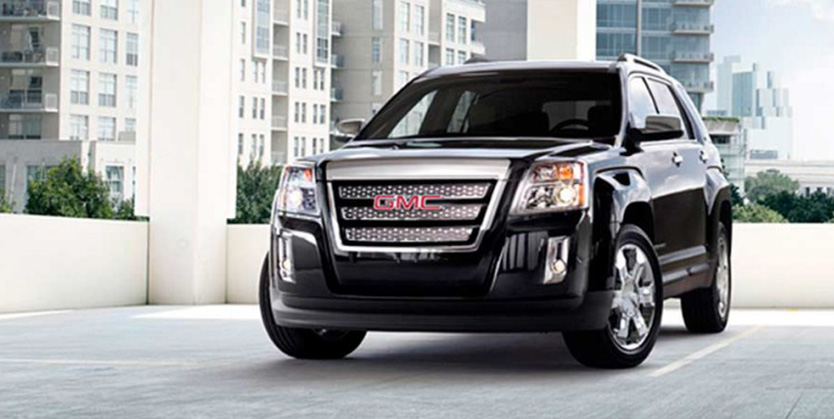Automotive Warranties: Are They Worth It?
Purchasing a new car comes with a lot of excitement. And why shouldn't it? New cars come with fresh parts, a smooth ride and performance, and all the latest and greatest features. You also don't really have to worry about them breaking down as you do with an older, used car. Take the GMC Terrain, for instance. It's quiet, comfortable, and powerful with lots of space for passengers and cargo — all sought-after qualities in a crossover SUV. Who wouldn't like a car with this kind of newness?
However, one thing to consider is that even though new cars come with a low risk of complications when you first buy them, there is always the chance that something could go wrong. If it does, what will you do? Will you have the money to fix the problem? Purchasing a vehicle - especially a new one - is a major investment. To save yourself some cash, the best way to protect your vehicle and your wallet is with an extended auto warranty. Here are some things you should know about automotive warranties and the benefits they provide.
What is an Automotive Warranty?
Before you opt for an automotive warranty, it's a good idea to know what it is. So first things first: what is an automotive warranty? An automotive warranty is a protection plan offered to consumers by automotive manufacturers and dealerships, protecting car owners from unexpected and expensive repair costs.
What is the Difference Between Manufacturer Warranties and Dealership Warranties?
Automotive warranties come in two kinds - manufacturer warranties and dealership warranties. Manufacturer warranties cover a vehicle for a certain number of months or miles driven. For example, a manufacturer may provide a 36-month or 36,000-mile bumper-to-bumper warranty and a five-year or 100,000-mile powertrain warranty. Manufacturer warranties are good to have, but when the average person drives over 36,000 miles in three years, the bumper-to-bumper warranty period expires faster than 36 months. Also, after five years and 100,000 miles, the powertrain warranty expires, which will leave you at risk for costly repairs. This is where paying extra for an extended automotive warranty comes in handy. If you opt for an extended warranty, your vehicle will be covered after the manufacturer's warranty expires.
What Are the Benefits of an Extended Warranty?
Now that you know a bit about automotive warranties, here's a list of benefits you'll get with an extended auto warranty.
● An extended warranty means longer coverage. Considering the average person drives well over 15,000 miles per year, an extended warranty will save you from expensive repairs well past this mileage.
● Modern vehicles are designed to last longer than 100,000 miles. An extended warranty will provide you future financial protection in case of repairs.
● Automobiles are becoming increasingly more expensive to fix. As a result, repairs can cost well into the thousands for problems with the drivetrain and electrical components. An extended warranty takes these costs away.
● Major repairs typically occur several years into ownership, long after the manufacturer's warranty expires. An extended warranty will cover your car when problems are most likely to happen.
What Do Extended Warranties Cover?
You already know that extended warranties cover the cost of certain repairs, but you may be wondering what repairs these include. Well, it all depends on the warranty! Extended auto warranties can cover anything from maintenance costs to powertrain components and more. Some even offer roadside assistance. Depending upon the plan you choose, every warranty will vary in cost and what it covers. Extended auto warranties typically have a deductible, and while the initial cost of an extended warranty may seem high, they often pay for themselves after covering just one major repair.
What Do Warranties NOT Cover?
Most auto warranties cover a wide range of vehicle damage, but even the world’s most comprehensive policy won’t cover every issue that you could run into and every one of your car’s 13,000 parts. Though there are specific parts of your vehicle covered under your warranty, you can generally expect that your warranty won’t cover general damage and needs resulting from wear and tear. This can include:
● Regular, all-season, and winter tires. Regular tire changes aren’t covered under most warranties. You may want to consider tire needs and expenses when you browse GMC lease deals in Bucks County.
● Standard maintenance items. Standard vehicle maintenance procedures (like oil changes and wiper blade replacements) likely won’t be covered under your warranty.
● Friction materials. Friction materials that frequently need to be replaced (including brake pads and clutch wear components) won't be covered under your warranty because they are considered maintenance items.
● Any type of auto glass. Most warranties also exclude damage to auto glass components, including your windshield, mirrors, and windows.
Though new GMC vehicles in Bensalem come with fewer risks of damage, a warranty can help you repair any emergencies. However, it’s important to remember that even new vehicles need ongoing maintenance, which isn’t covered under your warranty.
Can Warranties Be Voided?
Yes! Like most things that come with a warranty, your provider may void your warranty depending on how you treat your vehicle. Some of the things that might void your warranty may include:
● Failing to perform regular maintenance tasks (like inspections and oil changes)
● Abusing your vehicle (for example, driving a standard sedan through an area where you would need an all-terrain vehicle)
● Modifying your vehicle in a way that’s not approved by your warranty (for example, modifying your suspension)
Not sure what might void your warranty? Contact your warranty provider to learn more about the specifics of your policy.
For more on the GMC Terrain and a closer look at our optional warranties, visit our dealership today!

